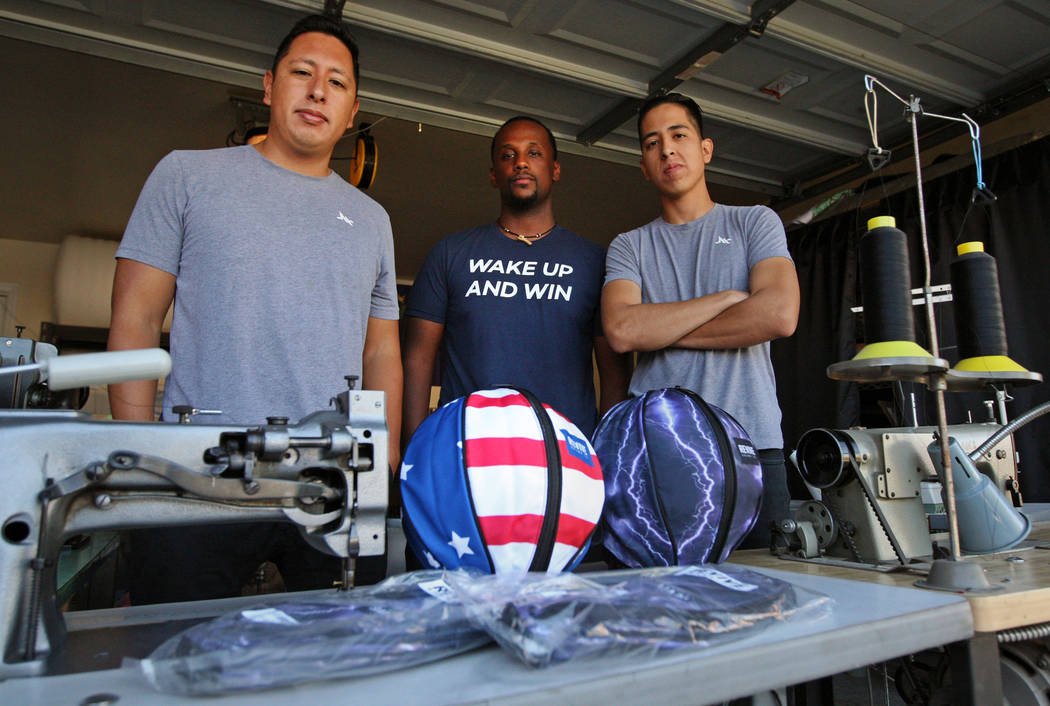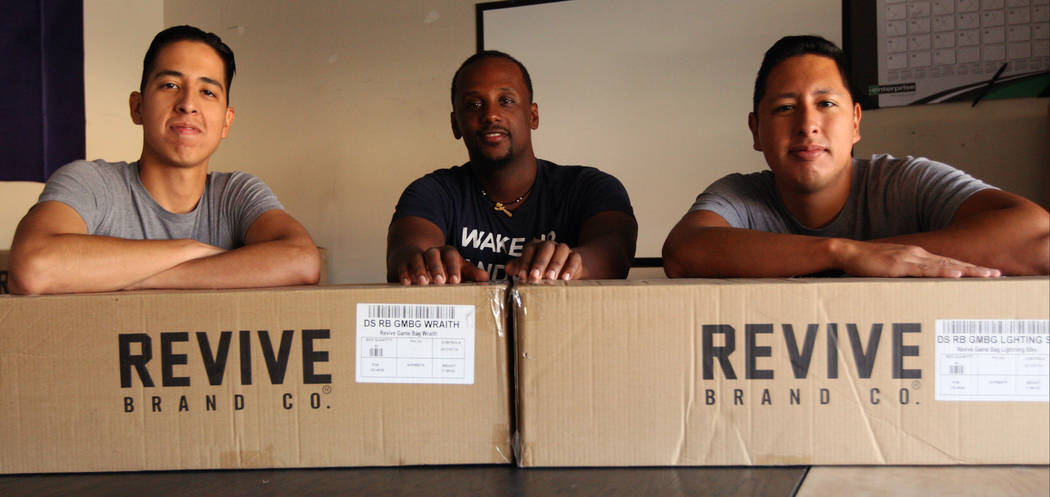Nevada Grow program gives free data to small local businesses




Medin Gebrezgier said data provided from a new state program helped him increase sales for his business by 40 percent between 2015 and 2016.
Before using data to hone price points and product details, Gebrezgier said he and his team were just “putting feet to the street.”
“We were just going up to people and finding out what exactly they (customers) wanted,” said Gebrezgier, one of the co-founders of sports apparel company Revive Brand. “That approached worked, but it was extremely taxing on us, and it didn’t have the results that we wanted.”
All of that that changed in 2015, thanks to a pilot program approved by the state Legislature, called NV Grow.
The program, which aims to help small businesses grow by providing local consumer, demographic and industry data to business owners, became permanent in July.
Free data
But not enough business owners are using it, Assemblywoman Dina Neal, D-North Las Vegas, said in October. Neal estimated that 43 business owners took advantage of the pilot program, which generated about $1 million in additional gross revenue for the businesses combined.
“We are trying to bring customized data and strategic research to businesses. We are going to teach them how to use it, and we are also going to mentor them and talk them through the process,” said Neal, who championed the legislation.
Neal met Oct. 25 at the College of Southern Nevada Charleston Campus with representatives from the Urban Chamber of Commerce, the Latin Chamber of Commerce and Nevada’s Small Business Development Centers in Clark and Washoe counties to get the word out about NV Grow.
Many business owners might not realize this service is provided free to local business owners, they said.
Pablo Rea, a data analyst for CSN’s division of workforce and economic development, puts together data packages for business owners.
Answering basic questions
He said he can help business owners answer questions like where the most strategic spot would be to place a company location, and he can deliver detailed consumer demographic information by ZIP code.
“The bedrock tenant of NV Grow is that it is data and technology that will drive economic development,” Neal said.
Kevin Raiford, CSN business professor and lead counselor of the NV Grow program, echoed that idea, saying managing a company in this era is all about “data, data, data.”
Raiford notified Gebrezgier of the pilot program in 2015. Gebrezgier estimates he has spent about 25 hours with Raiford since then, receiving advice or checking in about every month and a half.
Revive was co-founded in 2011 by Gebrezgier and brothers Cesar and Jon Santos. They won Cox Business’ fourth annual pitch competition in September, winning $20,000 in cash and prizes.
Contact Nicole Raz at nraz@reviewjournal.com or 702-380-4512. Follow @JournalistNikki on Twitter.
Nevada Grow
To qualify to participate in the program, a business must:
— Have its principal place of business within the State of Nevada and have had its principal place of business in the state for at least two years
— Generate at least $50,000 but not more than $700,000 in revenue
— Have a business plan
Program funding
The program is state-funded with:
— $225,000 allocated to allow the Nevada Small Business Development Centers to provide services
— $25,000 each to the Urban Chamber of Commerce and the Las Vegas Latin Chamber of Commerce for program support for business courses
— $125,000 for the College of Southern Nevada to hire a geographic information specialist and a lead counselor to assist small businesses who participate in the NV Grow Program
Competing with Tesla
Assemblywoman Dina Neal said the Nevada Grow program focuses on economic development through local small business, which she said is complementary to the Governor’s Office of Economic Development’s work.
“GOED focuses on some small businesses, but they have focused on the larger businesses and tax incentives,” Neal said. “Now that the program has structured, we have a pathway, we have our roles defined, I think that (GOED) will be more willing to be in the fray with us.”
Brian Bonnenfant, project manager for the Center for Regional Studies at the University of Reno, said it’s a first to have “expertise” at the university level and “data at the government level” combine to help small businesss.
“This is a big deal to get the small busineses the resources they need because these big, grand-slam companies like Tesla that get these abatements and all these resources at the top, the little guys aren’t getting those resources.”
And now they can, he said.












